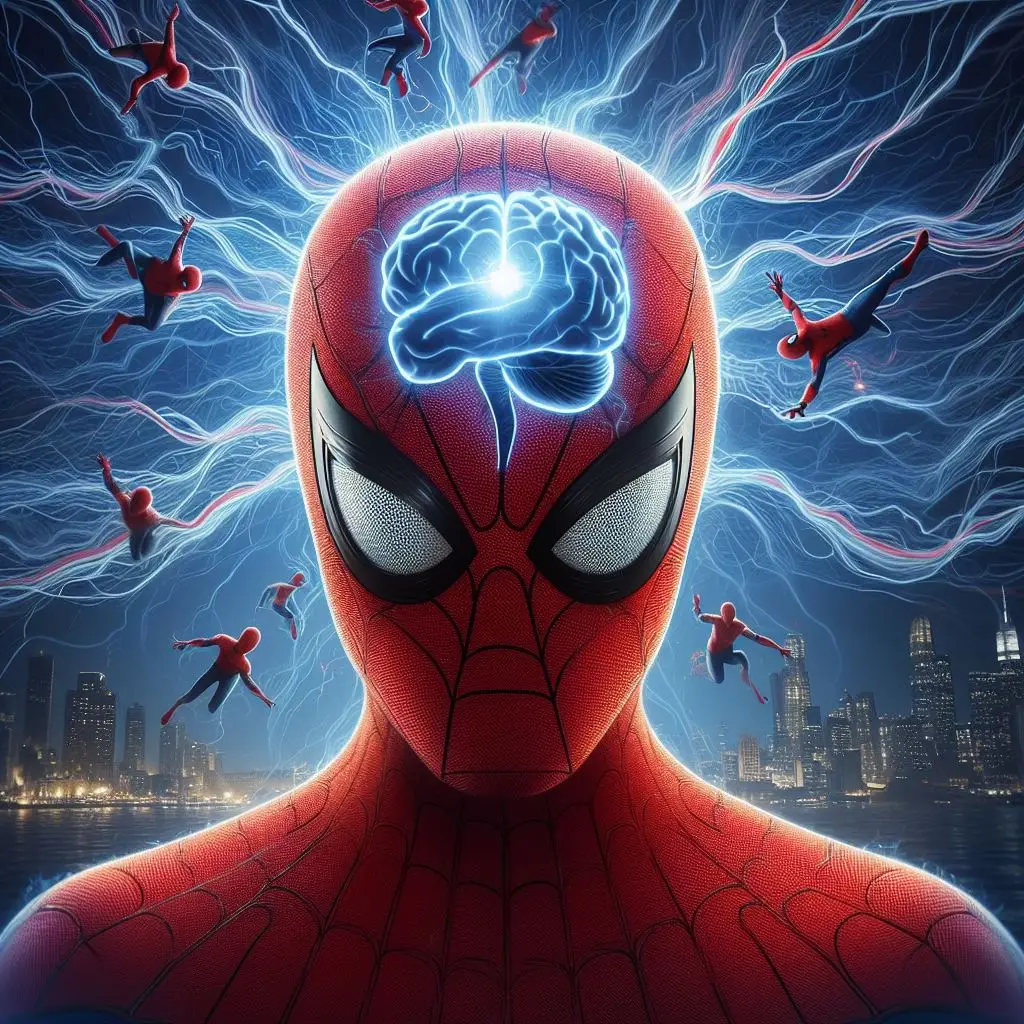Spider-Man is one of the most iconic and beloved superheroes of all time. First introduced in 1962, the web-slinging hero has captured readers’ imaginations for decades with his amazing powers, witty banter, and relatable personal struggles underneath the mask.
However, one of the most intriguing aspects of Spider-Man lore involves the instances when he loses those trademark abilities and superhuman strengths. These events add layers of complexity and vulnerability to an otherwise powerful character. In this blog post, we will explore the mystery behind Spider-Man’s power loss by analyzing some of the most pivotal storylines in the comics and media.
Understanding Spider-Man’s Power Loss: A Deep Dive
Over the years, Spider-Man has temporarily lost his powers in various story arcs across mediums. Oftentimes, these losses relate directly to internal conflicts Peter Parker faces in his personal life, reflecting the duality of his spider/human identity. By examining when and why Spider-Man loses his abilities, we gain critical insight into the core of this beloved character.

The Final Adventure: A Turning Point for Spider-Man
In the 1990s, Marvel released a storyline called Spider-Man: The Final Adventure, which envisioned a future where Peter Parker retires as Spider-Man after losing his powers. This loss occurs when Spider-Man exhausts himself in a massive battle against the Sinister Six villain team. With his weakened abilities, Parker struggles to find purpose and happiness solely as his civilian alter ego.
The Final Adventure arc provided an emotional glance into an aging Parker’s desire to settle down with his wife Mary Jane. However, without Spider-Man, Parker loses his zeal for life. He must learn to accept all facets of himself before confronting villains one last time to save his wife. This turning point reflects Spider-Man’s intrinsic connection to his powers.
The 90s Saga: Peter Parker’s Decision to Give Up His Powers
One famous 1990s plotline involves Peter Parker voluntarily relinquishing his abilities after realizing their complications. This difficult choice followed devastating events, including Parker’s friend Ned Leeds dying at the hands of the Green Goblin.
After confronting tremendous loss and guilt, Parker seeks a normal existence without his Spider-Man identity. However, he soon realizes the indispensability of his powers in protecting New York and those he loves. With help from Storm and the Fantastic Four, Parker regains his Spider-Man persona in an arc underscoring how integral it is to his optimal self.
The Role of Doctor Turner in Spider-Man’s Power Loss
Dr. Jonathan Ohnn, also known as Doctor Turner, directly catalyzes another impactful instance of Spider-Man’s power loss. As a geneticist lurking in Peter Parker’s subconscious, Dr. Turner represents Parker’s scientific curiosity – specifically regarding his own DNA. Turner creates clones of Spider-Man, steals the hero’s powers for himself, and causes Parker to dangerously mutate.
These unsettling genetic experiments and violations explore complex bioethical issues around DNA manipulation. They also create a formidable antagonist able to undermine Spider-Man’s special abilities. By literally robbing Spider-Man of his powers, Dr. Turner generates suspense regarding the hero’s vulnerability.
The Psychological Aspect: Why Did Peter Parker Lose His Powers?
Behind Spider-Man’s physical power loss exist thought-provoking psychological reasons related to Peter Parker’s inner turmoil as he navigates life’s challenges. The instances where Parker loses his special spider-abilities tend to coincide with intense internal conflict or prior trauma. By analyzing these psychological motivations, we better understand the quintessentially human aspects of this superhuman character.

The Impact of Personal Struggles on Spider-Man’s Abilities
Spider-Man derives his extraordinary capabilities from an irradiated spider bite altering Peter Parker’s DNA. However, Parker maintains the heart and soul of a brilliant but troubled teenager underneath the mask. As an orphaned, bullied, poverty-stricken outcast prior to his spider bite, Parker continually faces adversity even with heightened abilities.
Parker struggles to pay bills, sustain relationships, and even complete high school amidst his secret vigilante responsibilities. Grief also haunts Spider-Man regarding his uncle Ben’s murder—the seminal event inspiring Parker’s motto: “With great power, comes great responsibility.” Spider-Man’s powers falter when these human tribulations feel insurmountable to Parker.
For example, in Spider-Man 2, Peter Parker temporarily loses his abilities due to the stress of balancing school, work, and crime-fighting. Only by overcoming psychological roadblocks does Parker regain control of his powers.
The Battle Within: Spider-Man’s Inner Conflicts
Spider-Man’s internal identity conflict also weakens his special powers. As Peter Parker wrestles between his desire for an ordinary life and the duty bound to Spider-Man’s abilities, this inner turmoil disrupts his superhuman gifts sporadically throughout the comics.
During the Identity Crisis arc, Wilson Fisk steals proof of Spider-Man’s secret identity. This jeopardizes Parker’s loved ones and normalcy. Consequently, Spider-Man’s powers flux unreliably due to his psychological crises around exposing himself versus protecting others. Only after confronting the Green Goblin does Spider-Man regain control amidst reconciling his two sides.
By directly linking Spider-Man’s abilities to resolved inner conflict, these storylines develop profound connections between external powers and internal strength.
The Consequences of Power Loss for Spider-Man
Losing his special abilities proves physically and emotionally devastating for Spider-Man across numerous story arcs. Without his powers, Parker loses confidence, income while unable to sell Spider-Man photos, health while battling villains as regular Parker, and even loved ones to untimely deaths. These grave consequences for Spider-Man’s personal life underscore his sense of responsibility to regain such integral powers.

Spider-Man’s Identity Crisis and Heroic Journey
Peter Parker derives great personal meaning from Spider-Man’s very identity. Parker names himself Spider-Man after gaining incredible abilities from an arachnid bite. As Spider-Man, Parker channels his lifelong feelings of isolation and loss over his parents’ deaths into heroic goals protecting society’s vulnerable.
Losing these spider powers fractures Parker’s core identity and removes his outlet for overcoming traumatic losses. For example, in Spider Island, Parker declares “I can’t even be Peter Parker” without his alter ego. Only by recapturing his Spider-Man persona does Parker resume his hero’s journey toward responsibility and redemption.
The Return to Power: How Spider-Man Regains His Abilities
Just as Spider-Man losing his phenomenal abilities proves emotionally catastrophic for Peter Parker, so too does finally regaining those powers mark monumental moments of transformation across Spider-Man story arcs.
During The Other storyline, Spider-Man dies from wounds battling Morlun. However, Parker undergoes a mystical rebirth granting him greater spider-abilities like stingers, night vision, and enhanced strength. This metaphorical return to power signals Spider-Man embracing his archetypal destiny as anointed hero of the innocents.
Even when Spider-Man voluntarily relinquishes his powers as seen in the 1990s comics, his spider-abilities return vitally important towards Parker reconciling personal desires with heroic obligations to society. Reclaiming powers reminds both Spider-Man and readers why this hero uniquely inspires.
Conclusion
Spider-Man’s sudden losses of superhuman abilities may initially shock his fans. However, looking deeper at these pivotal instances across comics and film reveals meaningful evolution in Peter Parker’s complicated character. Losing his powers grounds Spider-Man in relatable humanity and vulnerability, reminding audiences that real inner strength, not spider bites, makes heroes.
By wrestling with identity conflict and tremendous loss related to his abilities vanishing unexpectedly, Spider-Man grows profoundly as a hero committed to formidable responsibility. His journey coping without powers clearly cements Spider-Man as iconic because of far greater qualities than superhuman strengths alone. Just as Captain America proclaims in the Marvel Cinematic Universe – Spider-Man embodies the most noble and courageous of heroes by being “nothing without the suit.”
Ultimately, analyzing why Spider-Man sporadically loses his trademark spider powers provides fascinating insight into the undying nature of heroism itself. The selfless act of fighting for others cannot be easily relinquished. And with or without super abilities, Peter Parker proves himself truly amazing not only for possessing such gifts, but for using them wisely and entirely for good – no matter the personal sacrifices.



Leave a Reply